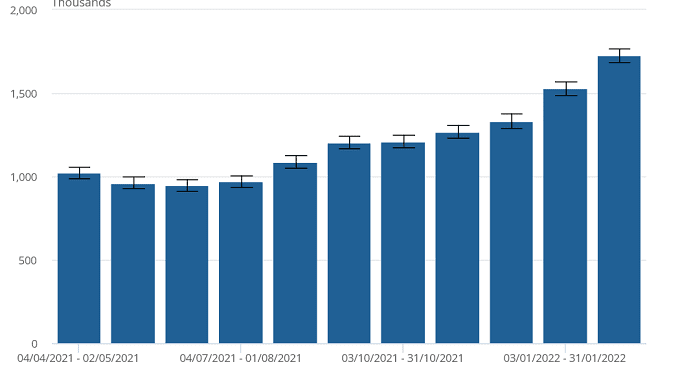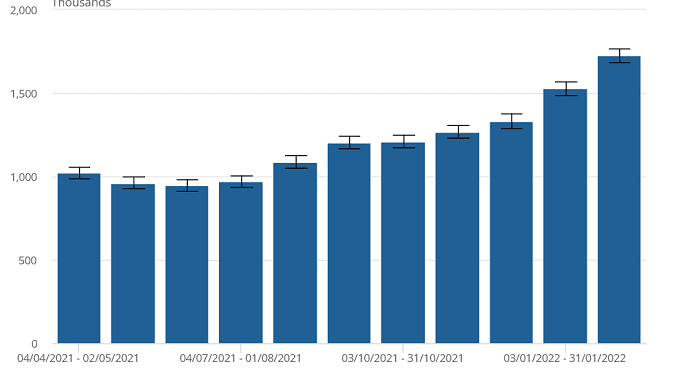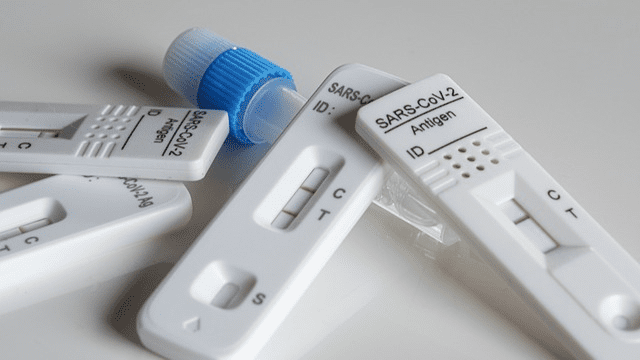
UK ONS: 2.7% of the British population reporting Long Covid symptoms
An estimated 1.7 million people living in private households in the UK (2.7% of the population) were experiencing self-reported long COVID as of 5 March 2022
The estimates presented in this analysis relate to self-reported long COVID, as experienced by study participants who responded to a representative survey, rather than clinically diagnosed ongoing symptomatic COVID-19 or post-COVID-19 syndrome in the full population.
Of people with self-reported long COVID, 422,000 (24%) first had (or suspected they had) COVID-19 less than 12 weeks previously, 1.2 million people (69%) at least 12 weeks previously, 784,000 (45%) at least one year previously and 74,000 (4%) at least two years previously.
Of people with self-reported long COVID, 561,000 (33%) first had (or suspected they had) COVID-19 before Alpha became the main variant; this figure was 253,000 (15%) in the Alpha period, 470,000 (27%) in the Delta period, and 334,000 (19%) in the Omicron period.
Long COVID symptoms adversely affected the day-to-day activities of 1.1 million people (67% of those with self-reported long COVID), with 322,000 (19%) reporting that their ability to undertake their day-to-day activities had been “limited a lot”.
Fatigue continued to be the most common symptom reported as part of individuals’ experience of long COVID (51% of those with self-reported long COVID), followed by shortness of breath (34%), loss of smell (28%), and muscle ache (24%).
As a proportion of the UK population, prevalence of self-reported long COVID was greatest in people aged 35 to 49 years, females, people living in more deprived areas, those working in social care, teaching and education or health care, and those with another activity-limiting health condition or disability.

Prevalence of ongoing symptoms following coronavirus (COVID-19) infection in the UK 7 April 2022
3rd February 2022:





